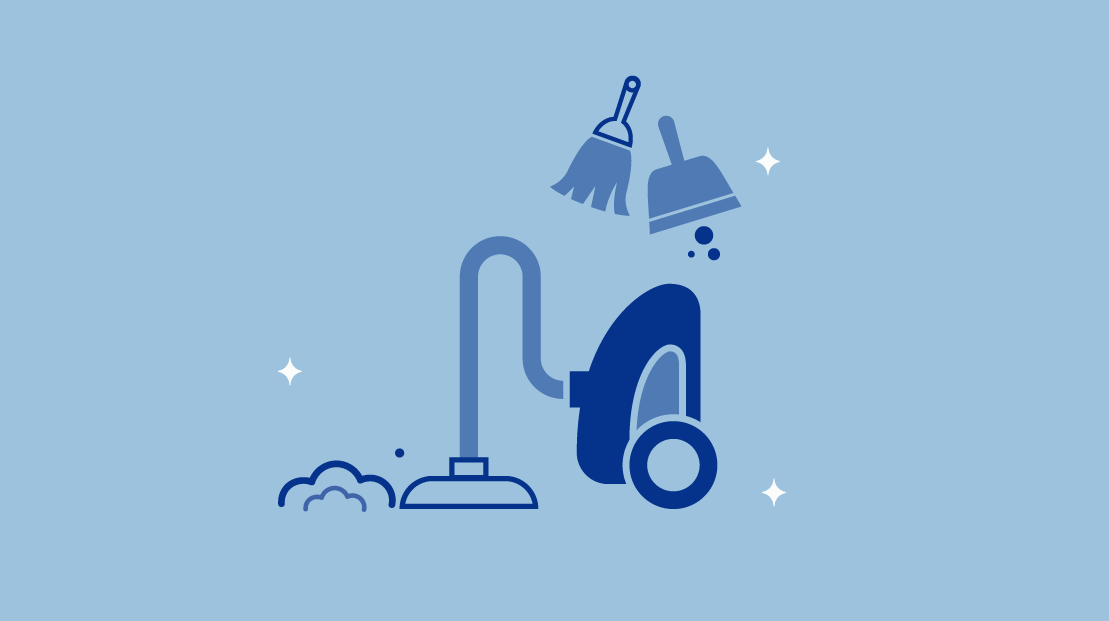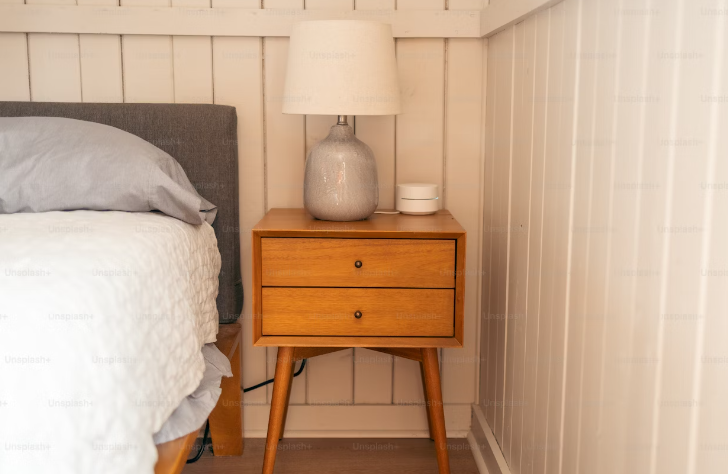Key Takeaways
- Optimizing Temperature Regulation: Understanding how the body regulates temperature through core temperature and blood vessels is crucial. Higher core body temperature promotes better sleep, and maintaining optimal blood flow is essential for warmth. Identifying and addressing potential issues like blood vessel disorders or anemia is important for effective temperature regulation.
- Building Muscle Mass for Heat Production: Increasing muscle mass through regular exercise, especially activities like cardio, can boost metabolism and body heat production. Exercise, when done earlier in the day, can also contribute to better sleep. Building muscle not only aids in warmth but also promotes overall health.
- Creating a Warm Sleep Environment and Lifestyle Changes: Adjusting the bedroom temperature, using extra blankets, taking warm baths, and considering electric blankets contribute to a comfortable sleep environment. Additionally, lifestyle changes such as wearing warm clothing and maintaining a healthy weight can enhance blood circulation and prevent nighttime coldness.
Feeling cold at night can disrupt your sleep and lead to health problems such as blood vessel disorders or an underactive thyroid. However, many factors such as body fat, core body temperature, red blood cells, and blood vessels affect body temperature regulation.
In this article, we’ll explore how to optimize these factors and increase muscle mass to prevent feeling cold at night. By incorporating these tips into your routine, you can enjoy a cozy and comfortable night’s sleep.
Best Amerisleep Accessories for Staying Warm
Quick Guide: A 30-Second Summary
| Best Warming Comforter | Amerisleep Recover+ Comforter |
| Best Warming Blanket | Amerisleep Allseasons Blanket |
Understanding Body Temperature Regulation
The human body has a remarkable ability to regulate temperature, keeping it optimal for proper functioning. Two of the primary components involved in this process are core temperature and blood vessels.
Core temperature Verified Source National Library of Medicine (NIH) World’s largest medical library, making biomedical data and information more accessible. View source refers to the internal temperature of the body, which is typically around 98.6°F (37°C). This temperature is essential for the optimal functioning of the body’s enzymes and metabolic processes.Blood vessels are responsible for carrying oxygen-rich blood throughout the body. Such blood circulation Verified Source National Library of Medicine (NIH) World’s largest medical library, making biomedical data and information more accessible. View source also plays a critical role in heat regulation by controlling blood flow to the skin’s surface and releasing heat through sweat production.
Interestingly, a higher core body temperature can aid in falling asleep and staying cozy. This is because a rise in core temperature helps promote drowsiness and triggers the body’s natural sleep mechanisms.
If your hands and feet feel cold, it could be a sign of a blood vessel disorder that restricts blood flow to your arms and legs. Conditions like clotting disorders, arteriosclerosis (narrowing of blood vessels), and Raynaud’s disease (spasms of narrowing arteries to the fingers and toes) are examples of blood vessel problems.
While having a natural tendency to be cold is possible, several conditions may explain your chill. Anemia, for instance, occurs when your body cannot produce enough normal red blood cells to effectively carry oxygen throughout your system.
You could also stay warm in bed by using a hot water bottle to provide comforting heat, promoting a cozy feeling and ensuring your body can effectively keep itself warm.
By understanding how core temperature and blood vessels maintain warmth, you can take steps to optimize these mechanisms and prevent feeling cold at night.
“Feeling cold at night can disrupt sleep and negatively impact musculoskeletal health,” says Dr. Jordan Burns. “ Findings Verified Source National Library of Medicine (NIH) World’s largest medical library, making biomedical data and information more accessible. View source indicate Verified Source National Library of Medicine (NIH) World’s largest medical library, making biomedical data and information more accessible. View source that a slight drop in body temperature is conducive to sleep, yet being too cold Verified Source National Library of Medicine (NIH) World’s largest medical library, making biomedical data and information more accessible. View source can lead to restless nights. Ensuring a balanced and warm sleep environment Verified Source National Library of Medicine (NIH) World’s largest medical library, making biomedical data and information more accessible. View source is key to achieving restorative sleep, essential for the body’s recovery and pain management processes.”
Boosting Body Heat Production
If you’re looking to increase body heat production, Verified Source National Library of Medicine (NIH) World’s largest medical library, making biomedical data and information more accessible. View source building muscle mass is an effective strategy. Regular exercise, such as doing jumping jacks or other forms of cardio, can help increase muscle mass and boost your metabolism.
Muscles Verified Source National Library of Medicine (NIH) World’s largest medical library, making biomedical data and information more accessible. View source are active tissues that consume energy, which means the more muscle mass you have, the higher your metabolism and body heat production.Additionally, staying active through exercise can promote better sleep, which is essential for maintaining a healthy body temperature.
To incorporate exercise into your daily routine for better sleep, try doing cardio earlier in the day to avoid stimulating your body too close to bedtime. You can also consider a relaxing activity such as gentle stretches before bed to help calm your mind and body.
Boosting Blood Circulation
Improving blood circulation is key to staying warm and maintaining overall health. Efficient blood flow ensures that oxygen and nutrients reach all parts of the body, promoting warmth and preventing sensations of coldness, particularly in the extremities. Simple lifestyle changes can significantly enhance blood circulation.
Compression socks are a practical solution to support circulation, especially for those who spend prolonged periods sitting or standing. These socks apply gentle pressure to the legs, aiding blood flow back to the heart and preventing pooling in the lower limbs.
Elevating the legs periodically, particularly after extended periods of sitting or standing, helps reduce swelling and encourages blood circulation. If need be, try using a wedge pillow under the knees to elevate them, or an adjustable bed.
Managing blood pressure is another crucial aspect. High blood pressure can strain the cardiovascular system and impede circulation. Adopting a heart-healthy diet, exercising regularly, and minimizing stress are effective ways to maintain optimal blood pressure levels.
Staying adequately hydrated also supports blood circulation by ensuring the blood maintains its fluidity, along with the benefits good hydration provides for sleep.
Creating a Warm Sleep Environment
When it comes to maintaining a comfortable body temperature at night, creating a warm and healthy sleep environment is essential. Here are some strategies to try:
Adjust Bedroom Temperature
It’s important to find the right balance with your bedroom temperature. While everyone’s ideal temperature for sleep varies, most people find a range between 60-72°F to be comfortable for sleeping.
Experiment to find your ideal temperature and adjust accordingly. You may also find your perfect temperature varies, requiring different temperatures for sleep in summer and in winter.
Use Extra Blankets
Additional layers can help retain body heat and keep you feeling cozy. Consider adding an extra blanket or two to your bedding. If you want to avoid having too many blankets, you can also try a heated blanket for added warmth.
Or instead, you could consider a heavier bedding item, like a comforter or duvet. These can keep you warm without the sweltering effect a pile of blankets can have.
See also a guide to comforters vs blankets.
Take Warm Baths Before Bed
A warm bath before bedtime can help Verified Source National Library of Medicine (NIH) World’s largest medical library, making biomedical data and information more accessible. View source relax your muscles and raise your body temperature, which can encourage a better night’s rest. Aim for water between 98-100°F and soak for 15-20 minutes.
Even a quick shower before bed can provide similar warming and relaxing benefits.
Consider the Use of an Electric Blanket
If you find it challenging to maintain a comfortable temperature, consider investing in an electric blanket. These blankets provide added warmth and allow you to adjust the temperature to suit your needs. Just make sure you practice electric blanket safety properly.
By using these strategies, you can create a warm sleep environment that will help you stay comfortable throughout the night.
“To avoid feeling cold, I recommend using thermal blankets and wearing socks to bed, as these can help sleepers adapt Verified Source National Library of Medicine (NIH) World’s largest medical library, making biomedical data and information more accessible. View source and retain body heat,” says Dr. Burns. “Layering bedding with materials like wool or flannel can also provide adjustable warmth throughout the night. These strategies align with the American Academy of Sleep Medicine’s guidelines Verified Source American Academy of Sleep Medicine Society focused on sleep medicine and disorders, and the AASM is who authorizes U.S. sleep medicine facilities. View source for creating a sleep environment that promotes continuous, restful sleep.”
Lifestyle Changes for Heat Retention
When it comes to preventing feeling cold at night, your lifestyle choices play an important role. Wearing warm clothing, including socks for sleep, is a simple yet effective way to retain body heat during sleep.
Additionally, maintaining a healthy weight can help improve blood circulation and prevent coldness. We’ve already discussed the importance of regular exercise for sleep and warmth as well.
So, consider making lifestyle changes that can help you retain heat and stay cozy during sleep. Invest in warm clothing and socks and maintain a healthy weight.
“For those who frequently feel cold at night, considering a mattress with temperature regulation features or a heated mattress pad might be beneficial,” suggests Dr. Burns. “Choosing products with adjustable settings is important to prevent overheating, which can also disrupt sleep. Integrating these tools into your sleep hygiene practices can help maintain a consistent body temperature, fostering a conducive sleep and spinal health environment.”
When Should I Be Concerned?
Feeling cold at night occasionally is not uncommon and may simply be a result of individual preferences or room temperature variations. However, persistent or extreme cold sensations can be indicative of underlying health issues that warrant attention.
If you consistently experience an inability to stay warm during the night, it’s advisable to pay closer attention to potential concerns.
Persistent coldness may be associated with poor circulation, anemia, or thyroid problems:
- Individuals with circulatory issues may experience difficulties in distributing blood effectively, leading to a sensation of coldness, especially in the extremities.
- Anemia, Verified Source National Library of Medicine (NIH) World’s largest medical library, making biomedical data and information more accessible. View source characterized by a deficiency of red blood cells, can impact the body’s ability to carry oxygen, contributing to a perpetual feeling of coldness.
- Thyroid disorders, Verified Source Medline Plus Online resource offered by the National Library of Medicine and part of the National Institutes of Health. View source such as hypothyroidism, Verified Source National Library of Medicine (NIH) World’s largest medical library, making biomedical data and information more accessible. View source can also lead to lower metabolism and difficulty regulating body temperature.
If your nighttime coldness is accompanied by additional symptoms such as fatigue, weight changes, or changes in skin color, seeking medical advice becomes crucial. Regular check-ups and open communication with your healthcare provider can help address concerns.
FAQs
Why am I still cold under blankets?
Feeling cold under blankets may be attributed to factors such as insufficient insulation, inadequate room temperature, or poor circulation. Ensure that your blankets are appropriate for the ambient temperature, consider using additional layers, and maintain a comfortably warm room environment.
If the issue persists, it could be related to health concerns, and consulting with a healthcare professional is advisable.
Should I be worried about feeling cold?
Occasional feelings of coldness may not be a cause for concern, as individual preferences and room temperatures vary. However, persistent or extreme cold sensations could be indicative of underlying health issues like poor circulation, anemia, or thyroid problems.
If you consistently experience excessive coldness, it is recommended to consult with a healthcare professional for a thorough evaluation.
How do I stop feeling cold at night?
To alleviate feeling cold at night, consider adjusting your sleep environment. Ensure your bedding is suitable for the season, use thermal or layered blankets, and set the room temperature to a comfortable level. Wearing warm sleepwear and staying adequately hydrated can also contribute to a warmer night’s sleep.
If the problem persists, consult with a healthcare professional to rule out any underlying health issues.
Why do I feel so cold at night?
Feeling excessively cold at night may be influenced by a variety of factors, including room temperature, inadequate bedding, or an underlying health condition. Hormonal changes, anemia, or thyroid issues can contribute to heightened sensitivity to the cold.
If this is a recurring issue, it is advisable to seek guidance from a healthcare professional to identify and address any potential health concerns.
How can I stay warm at night in bed?
To stay warm at night, ensure your bedding is appropriate for the season, use warm blankets, and consider adding layers for insulation. Adjust the room temperature to a comfortable level, and wear thermal sleepwear if needed.
Additionally, maintaining good circulation by staying active during the day and avoiding caffeine close to bedtime can contribute to a warmer and more restful sleep.
Can lack of sleep make you feel cold?
Yes, a lack of sleep can affect your body’s ability to regulate temperature. Sleep deprivation can lead to a decrease in metabolic rate and reduced blood flow to extremities, making you feel colder.
Additionally, fatigue can compromise the body’s ability to generate heat. Prioritizing sufficient and quality sleep is essential not only for overall well-being but also for maintaining a comfortable body temperature.
Conclusion
Ensuring a warm body temperature at night is crucial for a good night’s sleep and overall health. By following the tips outlined in this article, including understanding temperature regulation, boosting body heat production, creating a warm sleep environment, and making lifestyle changes, you can prevent feeling cold and enjoy a restful night’s rest.
It is important to take care of your body and stay warm in bed and out of it to improve your immune system and prevent health problems. However, if feeling cold persists or is accompanied by other symptoms, it is crucial to consult with a doctor. It could be indicative of underlying health problems like an underactive thyroid or circulation disorders.
Remember, a good night’s sleep is essential for your physical and mental well-being. Stay warm, rest well, and wake up refreshed to tackle the day ahead!
About the author
April Mayer is a sleep expert and writer with a degree in exercise physiology. She has dedicated her career to exploring the relationship between sleep and productivity. Her insightful articles, such as "The Surprising Way Your Mood Might Be Messing With Your Productivity" and "Wake Up to More Productive Mornings," have been featured in reputable publications like Forbes, Greatist, Real Homes, Thrillist, Tom's Guide, and Eat This, Not That. With a passion for helping others lead more productive lives through restful sleep, April offers valuable expertise on foods and vitamins for better sleep. As a trusted member of the Early Bird team since March 2020, she continues to provide informative and well-researched content.
View all posts





